TACROLIMUS - ORAL
PHONETIC PRONUNCIATION: (ta-KROE-li-mus)
COMMON BRAND NAME(S): Prograf
GENERIC NAME(S): tacrolimus
Uses
USES: Tacrolimus is used with other medications to prevent rejection of a kidney, heart, or liver transplant. This medication belongs to a class of drugs known as immunosuppressants. It works by weakening your body's defense system (immune system) to help your body accept the new organ as if it were your own.
How to use TACROLIMUS - ORAL
HOW TO USE: Read the Patient Information Leaflet if available from your pharmacist before you start taking tacrolimus and each time you get a refill. If you have any questions, ask your doctor or pharmacist. Take this medication by mouth with or without food, usually every 12 hours or as directed by your doctor. If you have nausea or an upset stomach, you may take this drug with food, although this may cause your body to absorb less of the drug. However, you must choose one way (with food or without food) and always take this medication the same way so that your body always absorbs the same amount of drug. Consult your doctor or pharmacist for more details. Dosage is based on your weight, medical condition, blood test results (e.g., tacrolimus trough levels), and response to therapy. Tacrolimus is available in different formulations (such as immediate and extended-release). Do not switch between different forms of tacrolimus without consulting your doctor. Do not increase your dose or take this medication more often without your doctor's approval. Your condition will not improve any faster and the risk of serious side effects may be increased. Also, do not stop taking this medication without your doctor's approval. Take this medication regularly in order to get the most benefit from it. It is important to take all doses on time to keep the amount of medicine in your body at a constant level. Remember to take it at the same times each day. Avoid eating grapefruit or drinking grapefruit juice while being treated with this medication unless your doctor instructs you otherwise. Grapefruit can increase the amount of certain medications in your bloodstream. Consult your doctor or pharmacist for more details. Since this drug can be absorbed through the skin and lungs and may harm an unborn baby, women who are pregnant or who may become pregnant should not handle this medication or breathe the dust from the capsules. Inform your doctor if your condition worsens.
Side Effects
Precautions
Interactions
Overdose
Images
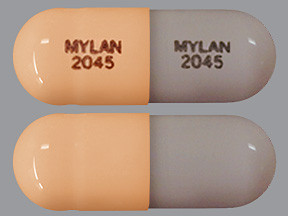
- color
- light orange
- shape
- oblong
- imprint
- MYLAN 2045, MYLAN 2045
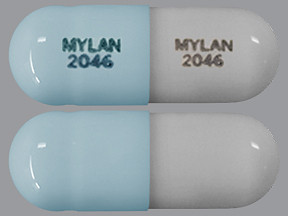
- color
- light blue
- shape
- oblong
- imprint
- MYLAN 2046, MYLAN 2046

- color
- light blue
- shape
- oblong
- imprint
- MYLAN 2046, MYLAN 2046
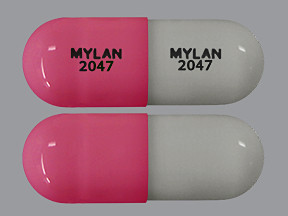
- color
- ruby red
- shape
- oblong
- imprint
- MYLAN 2047, MYLAN 2047
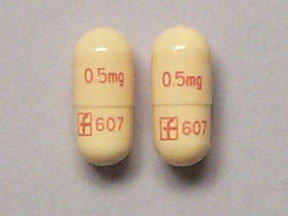
- color
- light yellow
- shape
- oblong
- imprint
- 0.5mg, logo and 607
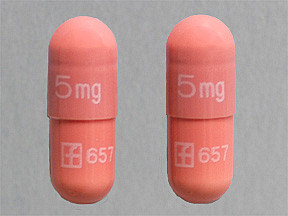
- color
- grayish red
- shape
- oblong
- imprint
- 5 mg 5mg, logo and 657 logo and 657

- color
- grayish red
- shape
- oblong
- imprint
- 5 mg 5mg, logo and 657 logo and 657
Reviews
Faq for TACROLIMUS - ORAL
- Tacrolimus Oral is a medication that belongs to a class of drugs called immunosuppressants. It is used to prevent organ rejection in transplant recipients, particularly kidney, liver, or heart transplant patients.
- Tacrolimus Oral works by suppressing the immune system to prevent it from attacking the transplanted organ. It inhibits the production of certain substances that can trigger an immune response.
- Common side effects of Tacrolimus Oral include diarrhea, headache, nausea, vomiting, trembling, or increased hair growth. These side effects usually subside over time, but if they persist or worsen, it is important to consult a doctor.
- Tacrolimus Oral should be taken exactly as prescribed by the doctor. It is usually taken twice a day, 12 hours apart, with or without food. It is important to take it at the same time each day to maintain consistent blood levels.
- Tacrolimus Oral can interact with certain drugs and foods, including grapefruit or grapefruit juice, which may increase the levels of Tacrolimus in the blood. It is essential to inform your doctor of all the medications and supplements you are taking to avoid potential interactions.
- Tacrolimus Oral may be harmful to a developing fetus or newborn, so it is important to discuss the risks and benefits with your doctor if you are pregnant or planning to become pregnant. It is also not recommended for use during breastfeeding as it may pass into breast milk.
- The duration of Tacrolimus Oral treatment varies depending on the individual and the purpose of its use. Transplant patients may need to take Tacrolimus for the rest of their lives to prevent rejection. Your doctor will determine the appropriate duration for your specific situation.
- If you miss a dose of Tacrolimus Oral, take it as soon as you remember. However, if it is close to the time for your next scheduled dose, skip the missed dose and resume your regular dosing schedule. Do not double the dose to catch up.
- No, Tacrolimus Oral should not be stopped abruptly without consulting your doctor. Suddenly stopping the medication may increase the risk of organ rejection. Any changes to the dosage or discontinuation should be discussed with your healthcare provider.
Warning
WARNING: Tacrolimus lowers the body's ability to fight an infection/disease (immunosuppression). This may increase your risk of developing an infection or certain types of cancer (e.g., skin cancer, lymphoma). To reduce the risk of these serious side effects, take this medication at the lowest effective dose as directed by your doctor. Keep all medical and laboratory appointments. Tell your doctor right away if you develop any of the following: unusual skin changes, change in the appearance/size of moles, unusual growths/lumps, swollen glands, night sweats, unexplained weight loss, signs of infection (e.g., fever, persistent sore throat).
Disclaimer
IMPORTANT: HOW TO USE THIS INFORMATION: This is a summary and does NOT have all possible information about this product. This information does not assure that this product is safe, effective, or appropriate for you. This information is not individual medical advice and does not substitute for the advice of your health care professional. Always ask your health care professional for complete information about this product and your specific health needs.
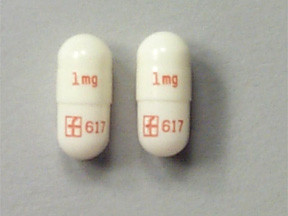
No Reviews Yet